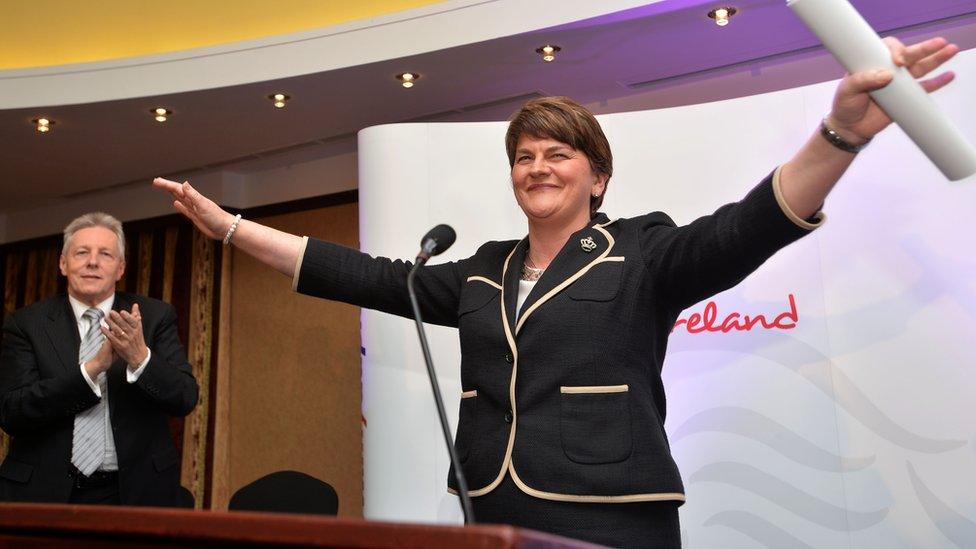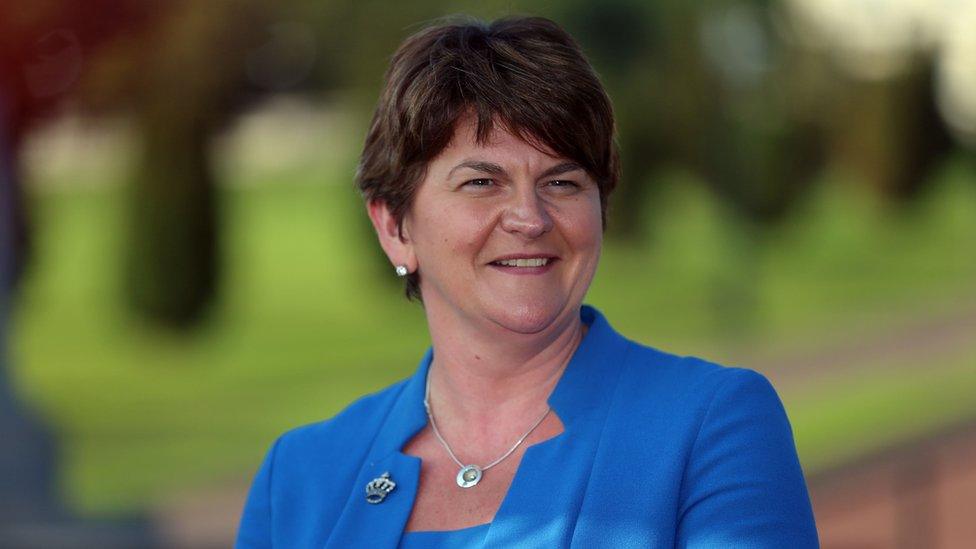Election profile: Arlene Foster, DUP leader
- Published

Arlene Foster has had a rapid rise through the ranks of the DUP since joining the party from the Ulster Unionists
This is the second election Arlene Foster will fight as party leader and she believes it will be the most important since 1998 - the year the Good Friday Agreement was signed.
Mrs Foster became leader of the Democratic Unionist Party (DUP) in December 2015 and Northern Ireland's first minister in January 2016.
Hers was a rapid rise through the DUP ranks since joining from the Ulster Unionist Party in 2004.
She has had experience of some of the most high-profile posts in Northern Ireland politics, having previously served as environment minister, enterprise minister and finance minister.
She also served as acting first minister for short periods in 2010 and 2015.
Born Arlene Kelly in Roslea, County Fermanagh, her steely character in the political arena has been forged by the experiences of her childhood.
When she was eight, her father, a part-time policeman, was shot and injured by the IRA on the family farm.
When she was a teenager in 1988, a bomb exploded under a school bus she was in that was being driven by a part-time soldier in the Army's Ulster Defence Regiment.
A girl sitting close to her was seriously injured.
UUP defection
In 2003, Mrs Foster was elected MLA for Fermanagh and South Tyrone for the Ulster Unionist Party (UUP).
Weeks later, she joined the DUP, along with Jeffrey Donaldson, another defector from the UUP. She had criticised the direction the Ulster Unionists had been taking under David Trimble's leadership.
Mrs Foster was appointed environment minister when devolution was restored in Northern Ireland in 2007.

Mrs Foster has had experience of some of the most high-profile posts in Northern Ireland politics
The following year, she took over as minister for enterprise, trade and investment, a job in which she had to deal with the impact in Northern Ireland of the global financial crisis.
In early 2010, Peter Robinson stood aside as first minister for a few weeks in the aftermath of a controversy about his wife Iris's affair with a teenager.
He appointed Mrs Foster to replace him on a temporary basis.
She was given control of Stormont's purse strings when she took over the finance ministry in May 2015, and when most DUP ministers resigned from Northern Ireland's ruling executive amid a fresh political crisis in September, Mrs Foster was the only one who remained in post.
She was also, once again, installed in the first minister's office for a few weeks.
Her reward came in December 2015, when she was elected unopposed by her party to replace the retiring Mr Robinson. She then took over as first minister in January last year.
The Fermanagh politician says this election will be "brutal " and she insists the poll in March should not be seen as a referendum of her handling of the Renewable Heat Incentive (RHI) scheme.
Her political opponents understandably take a different approach and say voters must use this election to judge how well Sinn Féin and the DUP have shared power in the past ten years.